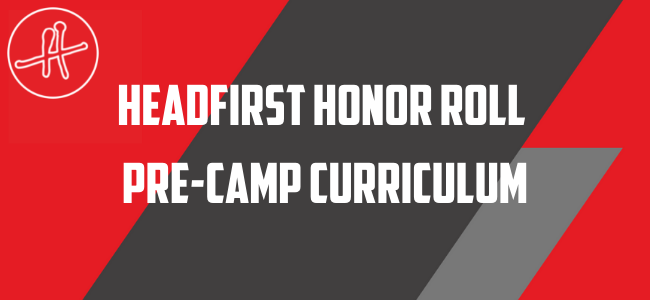



June 9, 2021
Welcome back for the ninth and final part of the pre-camp curriculum before the live pre-camp webinar and Q&A. In this final part, we’re going to hit some key takeaways and then focus in on “defining the win” both while you’re at camp with us and in the recruiting process overall.
While at every camp we watch student-athletes leave with a verbal commitment, that’s not the most common outcome, and it’s definitely not the only sign that you had a good camp or advanced your recruiting. The recruiting process is just that – a process – and in the vast majority of cases requires follow-up conversations and steps to take you across the finish line. As a student-athlete, there are going to be multiple schools on your list, so having a clear picture of your status or recruitability at more than one of these is important. For coaching staffs who are busy in the heart of their recruiting, they may have hundreds – or thousands – more student-athletes to see before they’re able to sit down as a staff and make some of these important recruiting decisions. Many coaches will often want to see a player a couple of times or get them on campus for a visit before they commit. Although it can sometimes be frustrating, this built-in timeline is a good thing, because it means that you have the time to weigh all your factors to make sure you’re finding the right fit.
To define a “two-day win” at Honor Roll, we’d highlight three recruiting-focused pieces:
After you attend an Honor Roll session, there’s a window after camp that offers great opportunities to follow up with coaches and advance your recruiting process. During this stretch, the key win is to continue conversations with coaches with an eye towards establishing next steps in your recruiting at the school.
Following up with coaches (covered in more detail in Part 5) after camp means continuing to build your relationship with these coaches as they get to know you, and also working to establish what you can and should do next in your process with your target programs. For some student-athletes, this will mean a verbal commitment. For others it may mean sending along your more complete academic file for an admissions “pre-read”, and for still others it may mean an invite to campus for a visit or a school-specific prospect camp. While all of these outcomes are different, the key piece is continuing communication with coaches to get to the next step – whatever that may be for you at your specific target programs.
Having these conversations may involve hearing “no” from schools on your list. In fact, you’ll almost certainly hear a “no” at some point during your recruiting process from a school you would love to go to – and no matter what, that’s going to hurt. BUT, each “no” is a gift that helps you move through the recruiting process, because each one gives you a bit more information about finding the right fit at the college level.
There are many ways that your teammates and classmates are going to define their “success” in their own college recruiting or admissions process. For many of your teammates, it’s probably to play Division I baseball, and for some of your classmates, it’s Ivy League – or similar – admissions.
But we challenge student-athletes to think beyond these labels, which severely limit your options of finding a good holistic fit. If you’re only considering Division I schools, or only considering this or that league, you’re not taking into account the qualities and characteristics of those schools that make up your best fit college.
Instead, we would encourage student-athletes to think about their “success” or “win” in the college process as using baseball to find the right holistic fit and then access it through admissions.
Remember – as a high-academic student-athlete, you’re going to have to think more critically about your school selection and ask yourself more (and more pointed) questions about your school fit because of the layer that athletics will play in your college experience. Your college selection process is going to be more involved, longer and probably more difficult than your chemistry lab partner who isn’t considering college sports. But it is worth it. Ultimately, going through the process in this way will help you find the best holistic, overall fit, because you have to fully and actively engage with it, thinking critically about what it is that fits you at the next level.
Thank you for watching and or reading through the Honor Roll Pre-Camp Curriculum – we appreciate your time and attention. We hope to see you on the upcoming Pre-Camp Webinar, where we’ll cover FAQs, logistics, and at-camp programming details – and we look forward to seeing you at camp